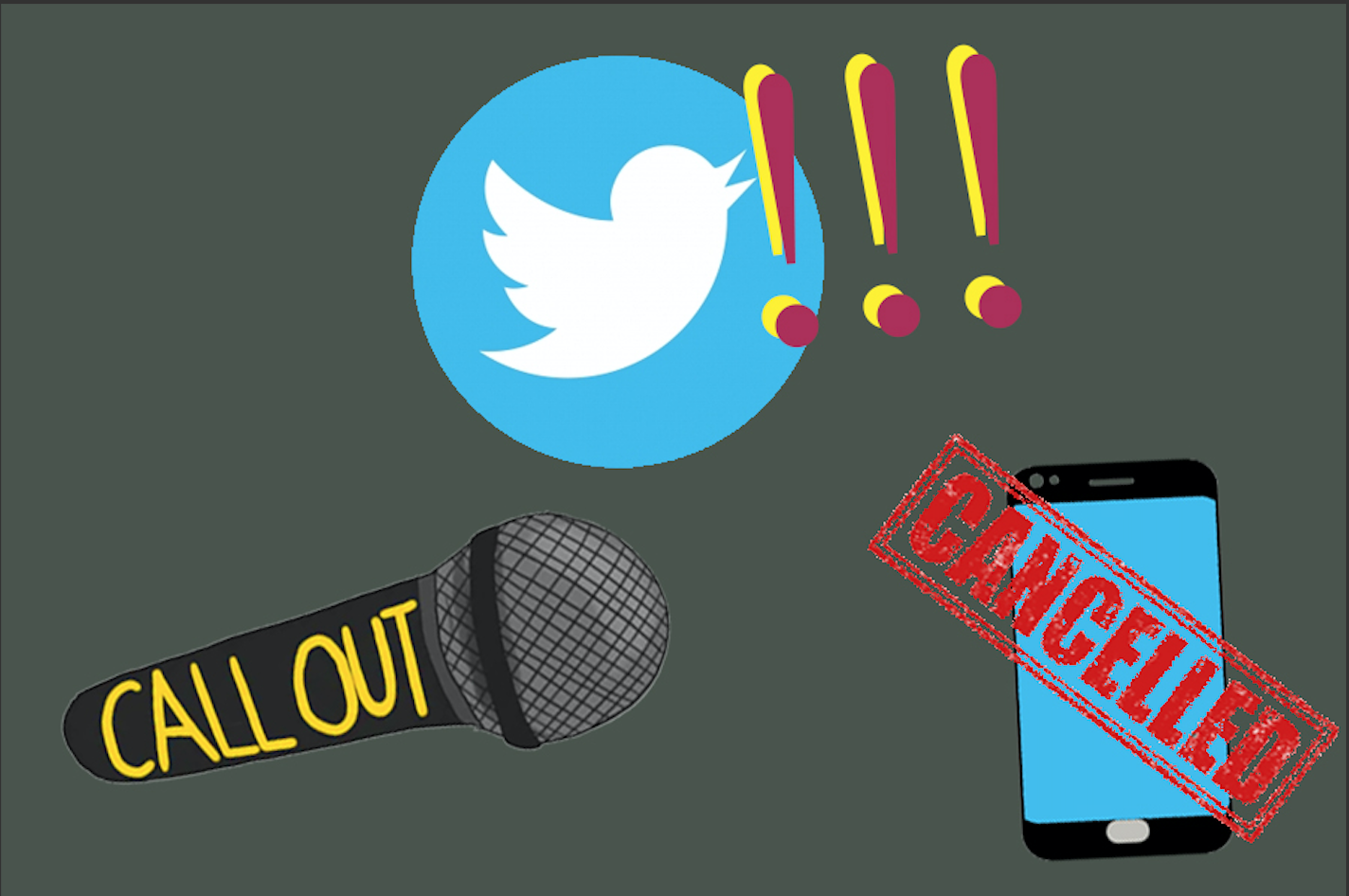By Christina Kelley

In the digital age we live in, it’s much easier to see what others are saying and see how others are feeling especially if it’s about someone else. On numerous occasions, I’ve watched from the sidelines as someone was “outed” on the internet for their past bad behavior. What oftentimes ensues is a swift, succinct call to action: This individual MUST be canceled. This act of canceling is a part of a much bigger picture called call-out culture or cancel culture. Lisa Nakamura, a professor at the University of Michigan who studies digital media says, “It’s a cultural boycott, It’s an agreement not to amplify, signal boost, [or] give money to.”
Many times people call for that person to be “canceled” aka ignored. Canceling is essentially the idea that the public is no longer going to give this person any of their attention or support. Part of me wants to be on board with call-out/cancel culture and the other part of me has serious reservations about it, whether it be the effectiveness of the call-outs/canceling or the intentions behind them and even the toxicity of call-out/cancel culture.
A big issue I have with call-out culture is the effectiveness or more so the lack thereof. It seems very pointless to me to call someone out or declare someone or something canceled if you aren’t going to stick to it.
In early 2018, Kanye West was on a publicity tour for his album “Ye.” During that press tour Mr. West declared to TMZ that 400 years of slavery sounded like a choice. Of course people across social media banded together to rage over the erroneous nature of his comment. The concluding idea? Kanye West is canceled. I saw many social media accounts that I was following, echo this same verdict.
However, when Mr. West finally released “Ye” it debuted at No. 1 making it his eighth consecutive album to do so, despite the fact that he was supposed to be “canceled.” Looking at the whole event, to me, the social media outcry seems frivolous. Especially considering the fact that some people I saw yelling at the top of their lungs that Kanye West was canceled were also the same people who were posting themselves rapping along to the new album. When a call-out is done in this way it comes off as very performative.
I very much stand behind the notion that people should be held accountable for the harmful and hurtful things they say and do. I very much applaud those willing to speak up when these instances occur, those who stand up fearlessly and are not waived by insults and accusations of them being “too politically correct,” but I find it harder to applaud when these call-outs come from a place of performative activism. In my opinion, it’s the worst on social media. Everything on social media is easily accessible and just as easily spread. Popular topics spread like fire until the hype around them dies down. After that it’s out of sight out of mind, so to speak. This is the very last thing genuine activism should be.
I find that this happens a lot on Twitter and Instagram, especially. I understand that no one’s day or social media existence has to be entirely consumed by activism. Mine isn’t, I wouldn’t expect anyone else’s to be either, but it is a little suspicious when you only call someone out on an issue that’s popular at the moment and then your thoughts and outrage about the issue are never to be seen or heard again. Don’t get me wrong I think the idea of a call-out can be an amazing way to insight social change and hold others accountable, but my real issue is the fleeting activism that can come along with it. I must admit, however, that I am guilty of this myself. There have been times when I have found myself calling someone out on an issue and then when all is said and done I never mention the particular issue ever again. It’s great that the issue is getting awareness, but it seems terrible when you’re only posting to get applause or because everyone else is doing it. Doesn’t the intention behind something matter just as much as the action itself?
Another thing that unsettles me about call-out/cancel culture is the toxicity of it. I just think there are far more effective ways to bring awareness to a particular issue or hold someone accountable for their wrongdoings. I find that a lot of call-outs never really aim to educate an individual on their misbehavior and many spiral out from a simple, “You shouldn’t have said/done this,” to more vicious, outright hateful territory. It’s an act of vigilante justice that leaves no room to entertain the idea that people can change. We as human beings often don’t remain stagnant in our growth, unfortunately, cancel culture often times fails to take this into account.
Take for example a podcast from NPR’s “Invisibilia” series, entitled “The Callout.” This particular episode was about a woman named Emily. She had been involved in the punk scene in Richmond, Virginia and was also a front-woman for her very own, successful rock band. She was a very vocal feminist and most of her lyrics and songs centered around standing with and supporting women.
However, in October 2016 things came crashing down. Emily was called out. The post which denounced Emily for a comment she made about a female classmate about 10 years ago, went viral. Emily’s comment in question was an emoji she posted making fun of the classmate whose nude photos had been uploaded online. After the post calling her out went viral, Emily was subjected to a barrage of hate-filled comments. Emily was subsequently ousted from the punk community. She lost friends, she lost her band and tried her best to retreat into obscurity.
The man who outed Emily was also interviewed. When asked about whether he cared about what happened to Emily after the call-out he simply replied, “No, I don’t care. I don’t care because it’s obviously something you deserve, and it’s something that’s been coming for a minute. I literally do not care about what happens to you after the situation. I don’t care if she’s dead, alive, whatever.”
The impersonal aspect of social media is what I think really allows the toxicity of call-out culture to thrive. It’s so easy to blast someone’s wrongdoings without taking into account that they’re a human, who is going to make mistakes, but also a human who can grow past those mistakes. I want to support call-out culture. I agree that people need to be held accountable for their actions, but ultimately I think that call-out culture falls short more often than not






















